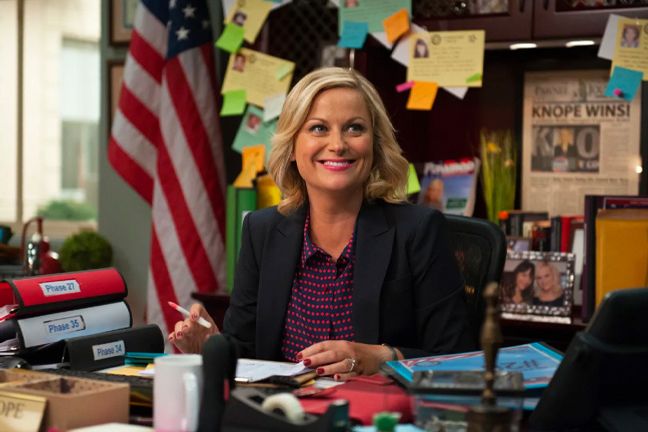In Alspaugh v. Federated Mutual Insurance, a customer of McDonald Automotive Group (“MAG”) got into a motor vehicle collision while conducting a test drive.[i] It was established that the customer was responsible for the collision. MAG was insured under a Commercial Package Policy issued by Federated Mutual Insurance (“defendant”), providing coverage specific to auto dealerships, including those instances in which customers get into a motor vehicle collision. Plaintiff filed a claim with defendant to recover for damages caused by this collision. However, defendant denied the claim because the customer who caused the collision was not insured under the policy provided to MAG. After review, the district court agreed with the defendant, relying on a Colorado Supreme Court case as authority.[ii]
The Terms of the Policy Debated
According to defendant, the terms of the insurance policy guaranteed that every vehicle will be operated with at least the minimum insurance coverage as required under Colorado’s mandatory insurance scheme.[iii] As such, defendant provided coverage under this policy for auto dealerships’ customers only if the customer did not have other insurance, or if their coverage did not meet the minimum policy amount required by Colorado law. The defendant asserted since the customer in this case had personal auto insurance which provided the minimum amount of coverage as required under Colorado law, the customer did not qualify as an insured under the commercial package policy.
Plaintiff filed an action against defendant alleging breach of contract, bad faith breach of contract, and statutory bad faith, all based on the allegation defendant incorrectly denied coverage. However, the court ruled in favor of defendant, granting defendant’s motion for summary judgement and denying plaintiff’s motion for declaratory relief.
The Court’s Rationale
The court’s reasoning for granting the motion for summary judgment was that the customer was not an insured under the policy because at the time of the accident, he was insured by other insurance. Further, the court stated the policy was consistent with Colorado’s mandatory insurance statutes, as the policy requirements in this case were satisfied by customers’ personal policies which had the required minimum amount of coverage.
Takeaways
In Colorado, a car dealership’s commercial policy package is valid and consistent with the state mandatory insurance statute if it provides coverage to the car dealership’s customers who are either (a) not covered under another policy that would provide coverage for motor vehicle accidents while conducting a test drive, or (b) covered by a policy that does not meet the minimum coverage amount as mandated by Colorado statute.
Co-authored by Ashley Paige Fetyko
Keep Reading
More by this author
Sources
[i] Alspaugh v. Federated Mutual Insurance Company, No. 22-cv-1737-WJM-SKC, 2023 WL 5333748 (D. Colo. Aug. 18, 2023).
[ii] Id. also see Shelter Mutual Insurance Company v. Mid Century Company, 246 P.3d 651 (Colo. 2011).
[iii] Alspaugh v. Federated Mutual Insurance Company, No. 22-cv-1737-WJM-SKC, 2023 WL 5333748 (D. Colo. Aug. 18, 2023); C.R.S. Section 10-4-619 and 10-4-620.

 Editor: Grace Shuman
Editor: Grace Shuman
 Cannabis Workers Allege Quota to Trim 4 Pounds a Day Violates the California Labor Code
Cannabis Workers Allege Quota to Trim 4 Pounds a Day Violates the California Labor Code
 The Ninth Circuit Reminds Us: Every Word Matters
The Ninth Circuit Reminds Us: Every Word Matters
 NO WAY, PRO SE! The Consequences of Abusing the Judicial System as a Pro Se Litigant in Colorado
NO WAY, PRO SE! The Consequences of Abusing the Judicial System as a Pro Se Litigant in Colorado
 Victim of Financial Mismanagement or Unlawful Retaliation? New Jersey City University Program Founder Claims School Retaliated After Reporting Alleged Sexual Harassment
Victim of Financial Mismanagement or Unlawful Retaliation? New Jersey City University Program Founder Claims School Retaliated After Reporting Alleged Sexual Harassment
 “Real Housewives” Gets a Reality Check
“Real Housewives” Gets a Reality Check
 Missing a Chapter: Insufficiency of Expert Deposition Testimony in Medical Malpractice Litigation
Missing a Chapter: Insufficiency of Expert Deposition Testimony in Medical Malpractice Litigation
 Crash Course: Why Summary Judgment Misses the Mark in Illinois Multi-Cause Limousine Crash Collision
Crash Course: Why Summary Judgment Misses the Mark in Illinois Multi-Cause Limousine Crash Collision
 Bitter Truths: Lead, Cadmium, and Defective Pleadings in California Chocolate Class Action
Bitter Truths: Lead, Cadmium, and Defective Pleadings in California Chocolate Class Action
 The Law of Unintended Consequences: Including Insurance Brokers in Litigation Strategy Communication May Waive the Attorney-Client Privilege
The Law of Unintended Consequences: Including Insurance Brokers in Litigation Strategy Communication May Waive the Attorney-Client Privilege
 Is Your Ticket to the Baseball Game Unconscionable? Court Finds Ticket is a Valid Contract But Arbitration Clause was Unenforceable
Is Your Ticket to the Baseball Game Unconscionable? Court Finds Ticket is a Valid Contract But Arbitration Clause was Unenforceable
 The California Civil Rights Department is Not Playing Games: $50 Million Settlement with Activision Blizzard for Female Employees
The California Civil Rights Department is Not Playing Games: $50 Million Settlement with Activision Blizzard for Female Employees
 You Poetic, Noble Land Mermaid: A Celebration of “Galentine’s Day”
You Poetic, Noble Land Mermaid: A Celebration of “Galentine’s Day”
 Settlement on the Slopes of Instructional Error
Settlement on the Slopes of Instructional Error
 The Covid-19 Naughty or Nice Coverage List
The Covid-19 Naughty or Nice Coverage List
 Taylor Swift’s 13 Takeaways to Stop Nuclear Verdicts®
Taylor Swift’s 13 Takeaways to Stop Nuclear Verdicts®
 “Thinking Out Loud” About Ed Sheeran’s Use of The Nuclear Verdict Defense Methods
“Thinking Out Loud” About Ed Sheeran’s Use of The Nuclear Verdict Defense Methods